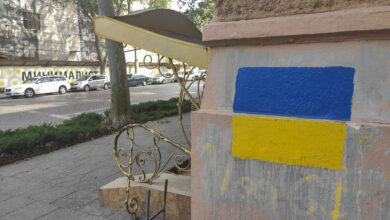Nato leaders meet in Vilnius to discuss Ukraine support, future membership

Vilnius, Jul 11 (EFE).- The leaders of Nato nations on Tuesday announced more weapons deliveries and military support for Ukraine in its fight against Russian forces.
At a summit in Vilnius, the secretary-general of the alliance, Jens Stoltenberg, said Nato would be sending “a clear message (…) that we stand by Ukraine for as long as it takes.”
“I also expect allies will send a clear and positive message on the path forward towards membership of Ukraine,” he said.
Ukrainian president Volodymyr Zelenskyy, who is expected to attend the summit in person, slammed the lack of a clear timeline for his country’s accession to the defensive alliance.
“It’s unprecedented and absurd when (a) time frame is not set neither for the invitation nor for Ukraine’s membership,” Zelesnkyy said on Twitter, questioning the alliance’s “readiness” to make Ukraine a member.
“Uncertainty is weakness. And I will openly discuss this at the summit,” he said.
Stoltenberg said he expected Nato nations to “reiterate their commitment to provide military support to Ukraine to help them liberate more land.”
In that vein, French president Emmanuel Macron announced upon his arrival in Vilnius that France would be sending medium range Scalp missiles to help Ukraine defend its territory.
“It is important for us today to send a message of support to Ukraine, of unity on the part of Nato and of determination that Russia cannot win this war,” Macron said.
Germany has also announced a new military aid package worth almost 700 million euro for the Ukrainian armed forces including, among others, air defense systems, tanks and artillery.
On the eve of the summit, Turkey announced it would back Sweden’s accession to the alliance, having threatened to veto the move over Stockholm’s handling of Kurdish militants wanted on terrorism charges in Turkey, among other issues.
Stoltenberg welcomed the “historic” development, saying it is “good for Sweden, it is good for Türkiye, it is good for the whole Nato alliance, and not least it is good for the Baltic region.”
Canada’s prime minister Justin Trudeau, reminded reporters that the Canadian parliament was the first to ratify Sweden’s accession to Nato and said he was “very pleased” with Turkey’s decision to unblock that process.
German chancellor Olaf Scholz also stressed the importance of Turkey as a partner upon his arrival today and assured that he will meet Turkish President Recep Tayyip Erdogan during the summit.
The leaders of the Nordic and Baltic countries welcomed Turkey’s approval of Sweden’s accession to Nato, which they believe completes the Atlantic alliance’s defense of its eastern flank that borders Russia and its ally Belarus.
“Our Nato membership is completed with that of Sweden,” said Finnish President Sauli Niinisto, whose country applied for membership – a process which requires unanimity – last year in parallel with Sweden. Finland’s application was already approved in April.
Stockholm had been awaiting ratification from Turkey and Hungary, which has said that its approval is simply a “technical matter”.
Spanish Prime Minister, Pedro Sanchez, meanwhile, announced that Spain would deploy troops to Slovakia and increase those it has in Romania to reinforce the alliance’s eastern front.
Alongside his Portuguese counterpart António Costa, he stressed the importance of paying more attention to Nato’s southern flank.
To strengthen the Alliance’s deterrence and defense capabilities, leaders at this summit hope to endorse three new regional plans that will be supported by 300,000 troops on alert, including significant air and naval combat power.





